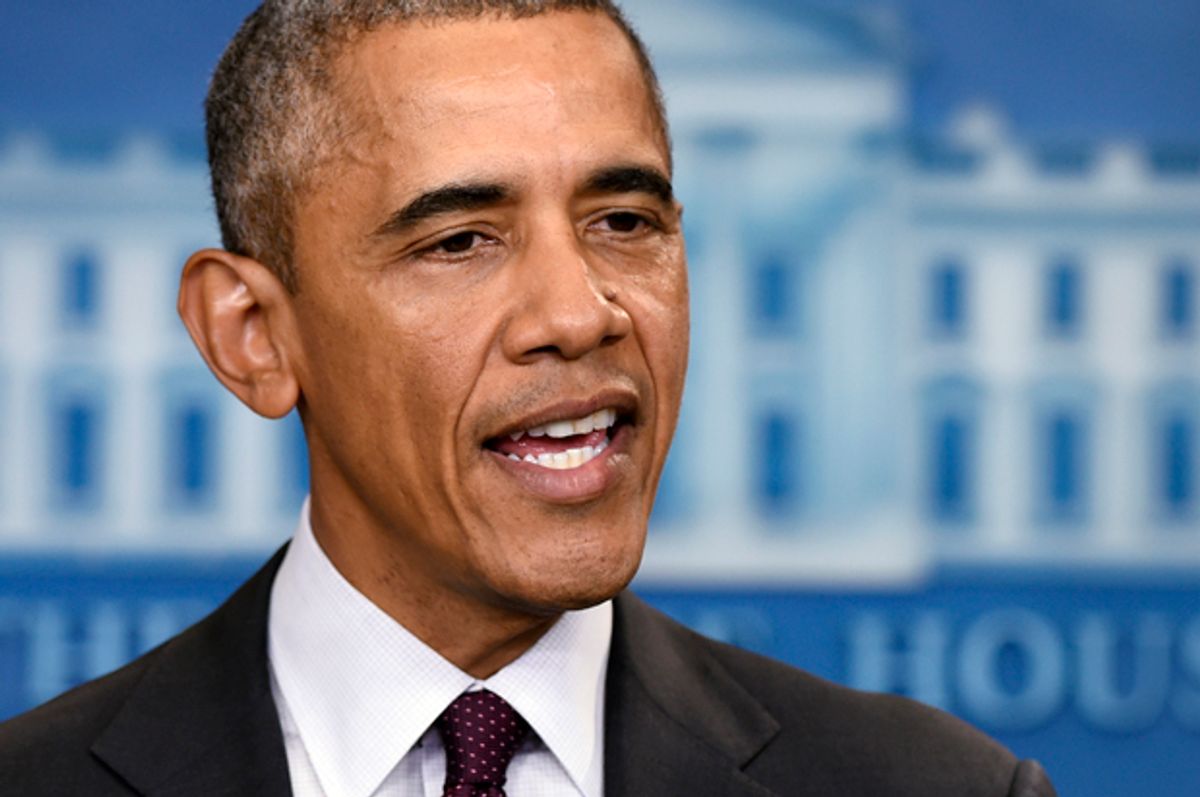President Obama's decision to deny permission for construction of the Keystone Pipeline may turn out to be a momentous event in the history of our efforts to protect our planet from environmental disaster. That's not because there were no good arguments for construction of the pipeline. In fact, it's because there were good arguments.
To begin with, the Keystone Pipeline is the only practical way for Canada to exploit its extensive oil sands. That would benefit the Canadian economy, at least in the short run. Second, the pipeline is likely to benefit our own economy as well, if only, again, in the short run. There has been a debate about the number of jobs that the pipeline will produce, but it stands to reason that a massive construction project running through the center of our country would provide at least some increase in employment.
In addition, the oil that the Keystone Pipeline would bring to U.S. refineries would be coming from Canada, rather than from the other countries with extensive reserves. These other countries are, in order: Venezuela, Saudi Arabia, Iran, Iraq, Kuwait, the United Arab Emirates, Russia, Libya and Nigeria. That's two failed states, two internally chaotic ones, two enemies or rivals, and three conservative, oppressive regimes whose fragility has been underscored by the collapse of their neighbors. Canada, by contrast, is probably one of the most stable nations in the world, and certainly one of our most reliable allies.
Still another argument in favor of the Keystone Pipeline is that it is an efficient and relatively safe way to transport oil into the United States. Again, there has been a good deal of controversy about the possibility of spills and leakage from the pipeline. Estimates range from two spills per decade (the industry estimate, not surprisingly) to nearly two spills per year, and predictions about the amount of time required to shut down a spill or leakage range from 11 minutes to 11 hours. Nonetheless, when compared to oil tankers that must burn enormous amounts of fuel to even reach our shores, and that can spill several times more oil in a single mishap than even the worst case scenario for an extended pipeline failure, Keystone seems like a preferable means of transportation.
These arguments are what makes President Obama's decision so important. Every proposal to increase our fossil fuel production is likely to be accompanied by arguments of this sort. We are unlikely to see energy industry executives appearing before a federal agency, Congress or the public to announce: "This project is inefficient, environmentally unsafe and deleterious to the economy, but we would like you to approve it anyway." Sometimes, a major development project turns out to be complete disaster, such as Glen Canyon Dam, which evaporates enormous amounts of water from the reservoir behind it (Lake Powell) into the dry desert air and has wreaked the ecology of central Colorado. But none of them start out as disasters.
The reason why it was so important to reject the Keystone Pipeline is not because it won't help Canada, nor because it won't create jobs. It also isn't because it won't provide us with a reliable source of oil, efficiently and safely. It is because it transports oil, period.
We simply must stop increasing fossil fuel consumption and start decreasing it. Every good idea to produce more coal or oil --let's pipe oil from the Canadian tar sands, let's drill for it under the ocean, let's liberate natural gas by using a high-pressure water mixture -- is a bad outcome, because it induces us to keep doing something that we now know will have catastrophic consequences. For the smoker who has been diagnosed with lung cancer, or the alcoholic diagnosed with cirrhosis of the liver, a decrease in the price of cigarettes or alcohol, and an improvement in their quality, is not good news. It's an inducement to continue a pattern of behavior that must be changed if the user wants to survive.
It was gratifying to hear President Obama link the rejection of the Keystone Pipeline to the issue of climate change. But he missed an opportunity by trying to refute the Pipeline's asserted advantages rather than talking about alternatives to the product it is designed to deliver. Yes, the Pipeline may make us less dependent on oil from unstable or hostile countries. But decreasing the amount of oil we need to import will have the same effect. Yes, the Pipeline may create new jobs. But building wind and solar installations, mass transit systems, and intelligent homes with zero carbon footprints will create new jobs as well. And yes the Pipeline may be a safe way to transport oil. But even if it never suffers a single spill, even if never releases even a single drop of oil into the land along its path, it will endanger our entire planet, and our entire mode of life.



Shares